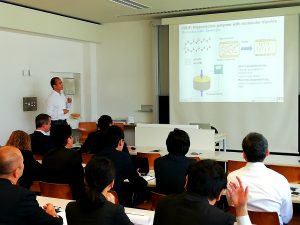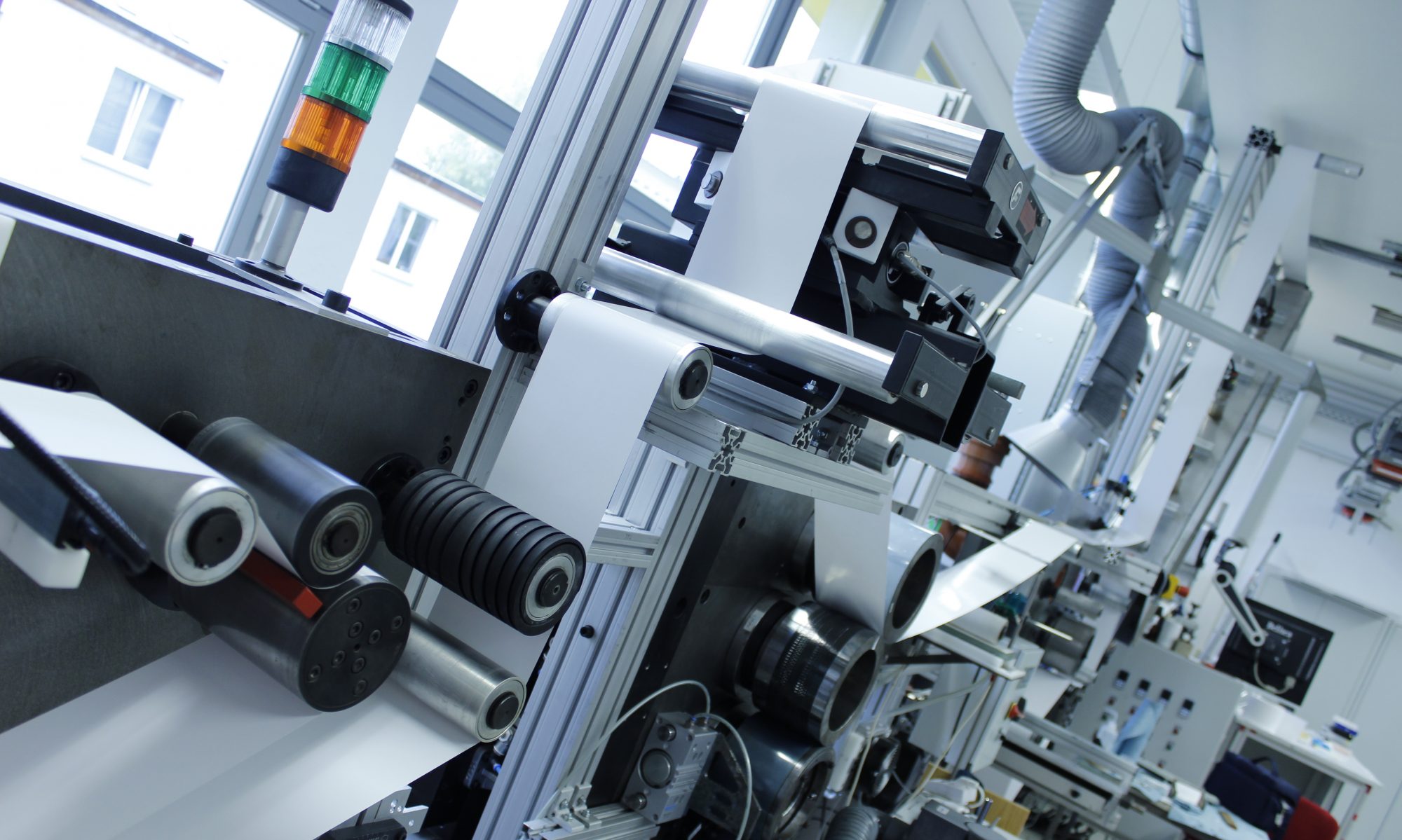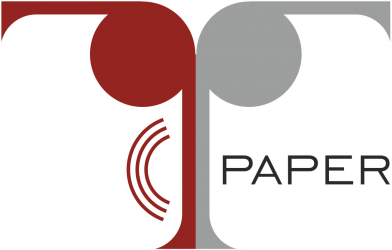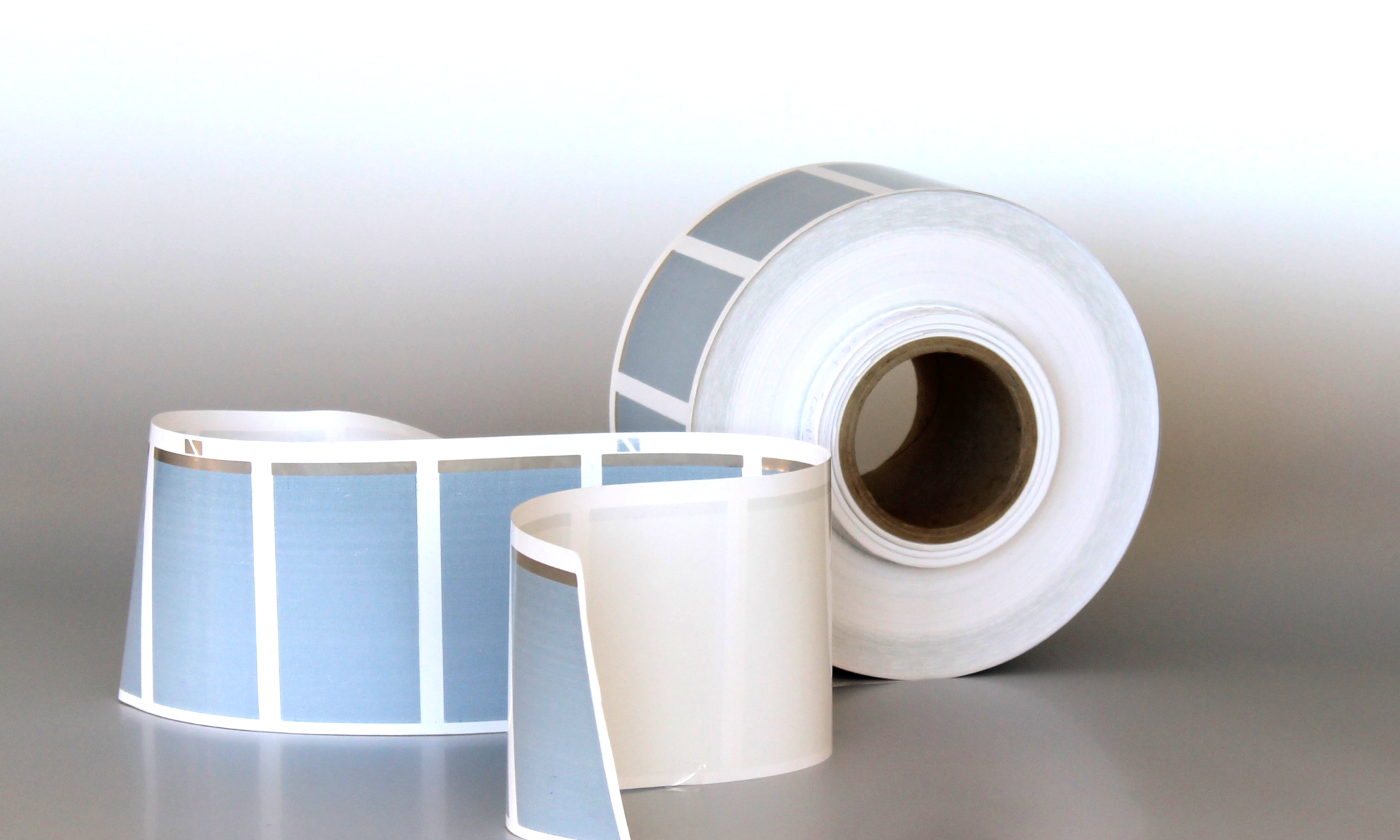In the TUCscicast Dr. Georg Schmidt responds the questions about the latest developments of T-PAPER technology, advantages of the printed electronics today as well as the ideas for the future applications on the basis of printed paper lodspeakers. You will find the TUCscicast in every podcast app!
T-PAPER at DAGA 2020
On March 16 – 19, the T-PAPER team will participate on DAGA – Jahrestagung für Akustik and present their latest ideas and developments.
Dr. Georg Schmidt will give a presentation about T-PAPER technology on March 19. The main aim is to present roll-to-roll method for mass-printing of piezoelectric loudspeakers.
Moreover in our booth we will present prototypes made with our unique printed loudspeaker paper which can be used for different applications like sound books, smart packages, etc.
The annual convention DAGA takes place in Hannover this year. Visit our booth #60 (1st floor) at Hannover Congress Centrum HCC and explore our sound applications with piezoelectric polymer technology!
Japanese delegation visited pmTUC
On September 25, the delegation from the Yamagata University visited the Institute for Print and Media Technology. Thanks to support by Organic Electronics Saxony was able to construct connection with colleagues in the field of flexible electronics. Among participants we could also meet the representatives of some Japanese companies. The T-PAPER team talked about Printed Piezoelectric Polymer Loudspeakers. In conclusion the participants had an opportunity to get a view of the laboratories of pmTUC.
The visit allowed the members of the delegation to gain a more comprehensive understanding of the printed piezoelectric polymer loudspeakers and of printed electronics in general.

New scientific paper published
The T-PAPER team published their latest study of “Fully Printed Piezoelectric Polymer Loudspeakers with Enhanced Acoustic Performance” in Advanced Engineering Materials. Xunlin Qiu, Georg C. Schmidt, Pramul Muraleedhara Panicker, Ricardo Alonso Quintana Soler, Aravindan Joseph Benjamin and Arved C. Hübler investigated the influence of remanent polarization and the area of the piezoelectrically active layer on the acoustic output of the loudspeakers. Dielectric spectroscopy was used to study the dielectric properties of the printed loudspeakers before and after poling. Due to the remanent polarization the T-PAPER team could realize a much higher sound pressure level than that achieved by previous tests.
Moreover, this work provides a better comprehension of functionality of fully printed piezoelectric polymer loudspeakers.
VIP+ Report of the Federal Ministry of Education and Research
The Federal Ministry of Education and Research published a report on the last VIP+ Innovation Conference 2019 in Berlin. The T-PAPER team also participated in the Conference 2019. Their printed loudspeaker was presented at the exhibition VIP+UP! .
The aim of the Innovation Conference is a technology transfer from universities to industry. The grant-aided projects have an opportunity to exchange their experiences and to present their latest developments.
The T-PAPER project is funded under VIP+ program by the Ministry of Education and Research since 2017.
T-PAPER presented at the IEEE ISE 2019 in Ireland
The T-PAPER project participated in the 17th International Symposium on Electrets at the University of Limerick.
Dr. Xunlin Qiu talked about “Fully printed polymer layer structures as flexible piezoelectric loudspeaker” and took part in some workshops. He also got a chance to talk about the latest developments of the T-PAPER project with colleagues from Malaysia, Japan, the United Kingdom, China, Denmark and Austria.
Furthermore, the IEEE 17th International Symposium on Electrets was a great opportunity to meet some industrial representatives, such as Bosch Group and Altratech.
Paving the way for a sounding photo book
PRESS RELEASE
The Institute for Print and Media Technology at the Chemnitz University of Technology strives to reach the mass market with the printing of paper-speakers – the project is funded by the Federal Ministry of Education and Research (BMBF) with approx. 1,4 million euros.
If the Institute for Print and Media Technology at the Chemnitz University of Technology succeeds, the speaker of the future will be thin as paper and make photo books and packaging sound. In the laboratories of the Chemnitz researchers this is almost real as they already developed the numerously awarded “T-Book” – a large-scale photo book equipped with printed electronic – in 2015. If a page is turned in the “T-Book”, an invisible speaker inside the paper makes sound. “The T-Book is a milestone in the development of printed electronics”, says Prof. Arved C. Hübler, who is managing and promoting this technology trend for 17 years and increases its global importance.
The sonorous innovation from Chemnitz is hitherto manufactured in a semi-automatic single sheet procedure. In the process, normal paper or foils are printed with two layers of conductive organic polymers as electrodes. In between, a piezoelectric layer is incorporated as active element setting the paper or foil into motion. Thus, by air displacement the sound is produced loud and clear. Both sides of the speaker-paper can be color printed. As until now only a single sheet production is possible, the efficiency of this procedure is yet quite low.
That is why the researchers of the Institute for Print and Media Technology take a new line since May 2017 – towards the cost-efficient mass production. Aim of the current project “roll-to-roll printed loudspeaker paper” (short: T-Paper) is to transfer the hitherto single sheet production to a web-based production. “This is supposed to significantly increase the efficiency of the complete manufacturing process in order to address future mass markets such as photo books”, explains project leader Georg C. Schmidt. Furthermore, the optimization of the performance and visual appearance of the speaker paper is planned. “Thus, the possibility arises to fully exploit the potential of the speaker paper and the extension of the application range towards, for example, the field of sensor technology”, Schmidt continues.
The project “T-Paper” is funded within the framework program “Validierung des technologischen und gesellschaftlichen Innovationspotenzials wissenschaftlicher Forschung – VIP+” of the Federal Ministry of Education and Research in the following three years with approx. 1,4 million euros.
T-paper: A new VIP+ project dedicated to printed loudspeakers
pmTUC proudly presents a new research project: Since May 1st 2017, „T-paper“ is running dedicated to the further development of printed loudspeakers on paper webs. The project is funded by BMBF under the framework program „VIP+“ with a budget of more than 1.3 Mio. EUR for three years. More information following soon…





